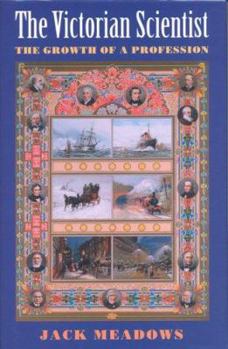Victorian Scientist: The Growth of a Profession
At the start of the nineteenth century, science was a minority cultural interest. By the end it had become one of the central components of contemporary thought. The growth of science as a profession began taking shape in the Victorian period and was due to the influence of just a small group of men. Who these men were and how they created the foundations of the modern scientific community we recognize today is revealed, in this thought-provoking book by Jack Meadows, through the individual experiences of figures such as Darwin, Huxley, and Faraday, as well as lesser-known scientists of the time.
Set against the backdrop of a changing world of improved communication and travel, Meadows uncovers how these scientists fought against the limitations of an education in the classics and strove to develop their scientific interests into a profession. The Victorian Scientist tracks the growth of laboratories and research groups, and the importance that new scientific societies, journals, and lectures played in making Victorian science an essential stage in the evolution of scientific communication today.





